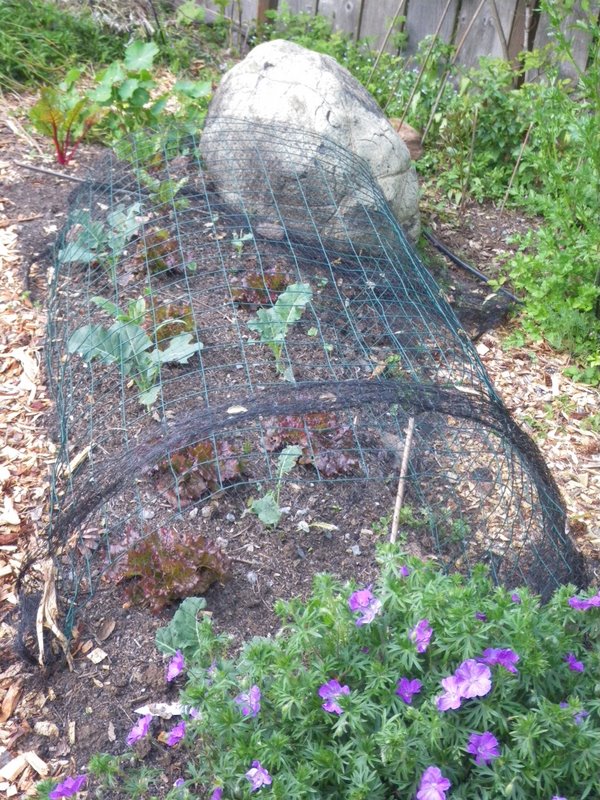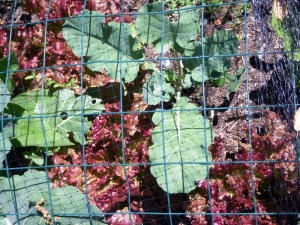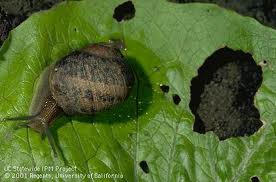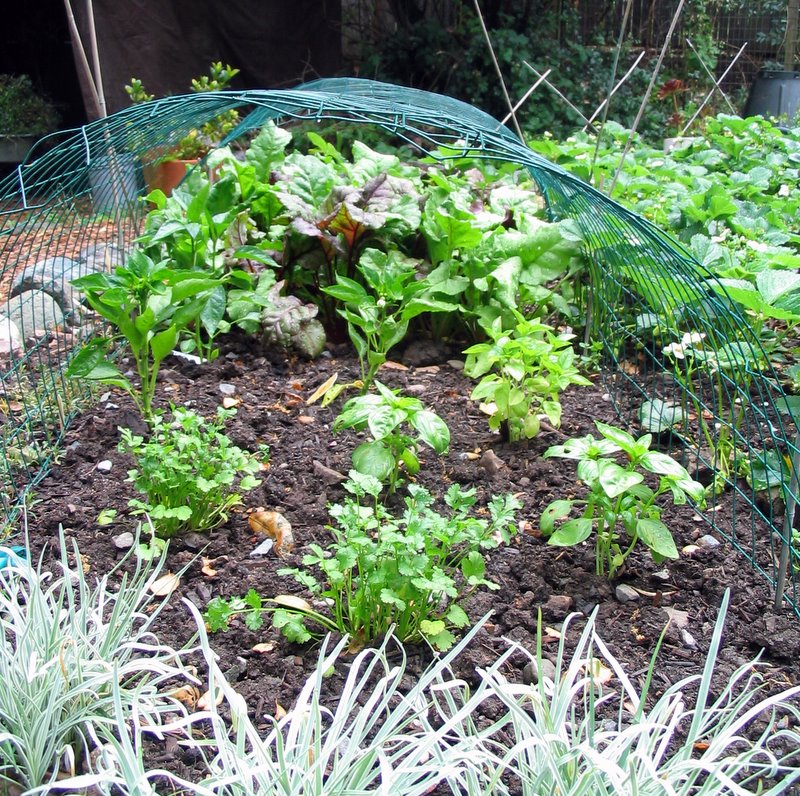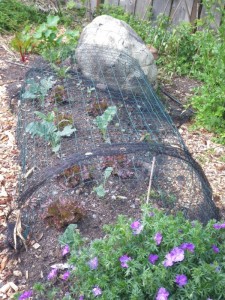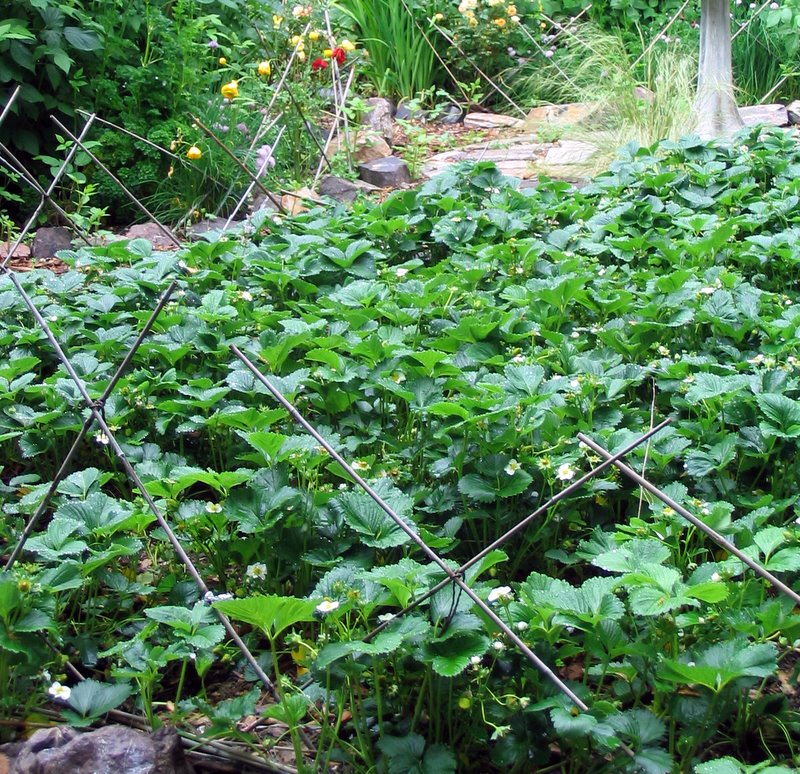
I just got a question about some really annoying critter(s) in the vegetable garden. Since pesky critters are a common problem, I will help you figure out who is doing what in your garden and how to take care of them, without poisons or pesticides. There are many challenging pests, and in this post, I’ll talk about raccoons, moles and gophers. Stay tuned for other pesty guys tomorrow.
Here’s the question: “For the last week or so there has been some critter routing around in my garden digging through the soil. What could this be…skunk, possum, raccoon, other?…and how do I keep it from digging up my vegetable plants and trampling my young greens.”
My first thought, is that it is probably a raccoon. They are notorious for rooting around in the soil looking for grubs to eat. They will also dig up new sod lawns, looking for food. Raccoons will climb trees and wreck havoc in your fruit trees, breaking branches and eating your fruit. They will open garbage cans, get into your compost and in general be a HUGE nuisance. They will also, come directly into your home and rummage around your cupboards looking for treats. I am NOT exaggerating. All these things have happened to me.
Make sure you are not leaving any dog or cat food outside that will lure them to the house. Be sure to close your doors at night. This may seem obvious, but we always leave our doors open at night for our cats to go in and out. Imagine my outrage, when I discovered that the raccoons had been coming through our bedroom, down the hall, through the living room, into the kitchen, onto the counter and taking my avocados back through the house outside for some evening dining. The nerve of them!
We had a cat door put into the front door of our house. The cats wore magnetic collars that opened the door. The raccoons literally tore the cat door out of the front door, bolts and all. It was like something out of a Stephen King horror novel.
But I digress. Close your doors at night. No food outside. If you have a compost bin, you need to make sure the lid and doors close tightly or they will come back nightly to raid the food.

A simple wire and bird netting to protect plants (click to enlarge)
I screwed and bolted the door of my compost bin and they cannot get in now. I guess I showed them who’s boss.
The picture on the left shows a garden bed with wire over it. Draped over the wire is bird netting. In the Spring birds like to eat the tender young greens. This keeps both large and small critters out of the bed.
This next picture is a close up of the wire and netting.
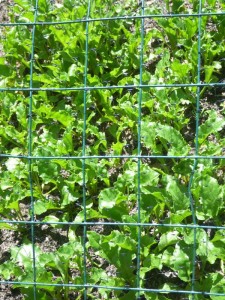
Wire and netting over a beet bed
The other animals that like to dig in our gardens are gophers and moles. Gophers are serious pests and can do a lot of harm. They burrow underground in a network of tunnels. One sign of them in the garden is a raised mound of earth with a little hole at the top. This is the result from their tunneling. The minute you see a new mound is the best time to get the gopher. Trapping is the most efficient method.
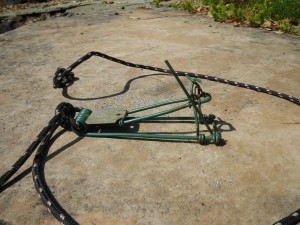
gopher trap
You need to dig directly into the mound and find the tunnel underneath. It will go in two directions. You need to put a trap into both sides, as you don’t know which direction they’ll be coming from. I rub the trap with parsley or carrot greens. This takes away any human smell and also lures them. You can see in the photo, that I’ve put a rope on the trap. I peg it into the ground so that they don’t pull it into the tunnel. I also put a board or stone over the hole to keep the light out. Keep checking the trap. Sometimes they throw dirt into the hole you’ve dug, and you need to clear it out.
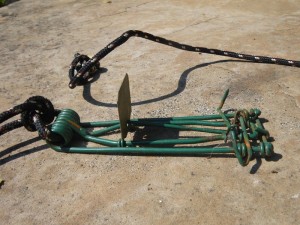
Set your trap carefully (click to enlarge)
Trapping is not for the faint of heart. But I’ll tell you, when they start pulling your beautiful broccoli plants under ground, you’ll be motivated.
Moles are insectivores. They don’t eat your plants, but they do tunnel underground. This sometimes creates air pockets around the plants that causes them to wilt. Push the soil back up against the roots of the plants and water them. That will usually take care of your plants. I don’t trap moles. I think they do more good than harm.
Come back tomorrow for more about pesky critters in your Edible Landscape.


 Follow
Follow


